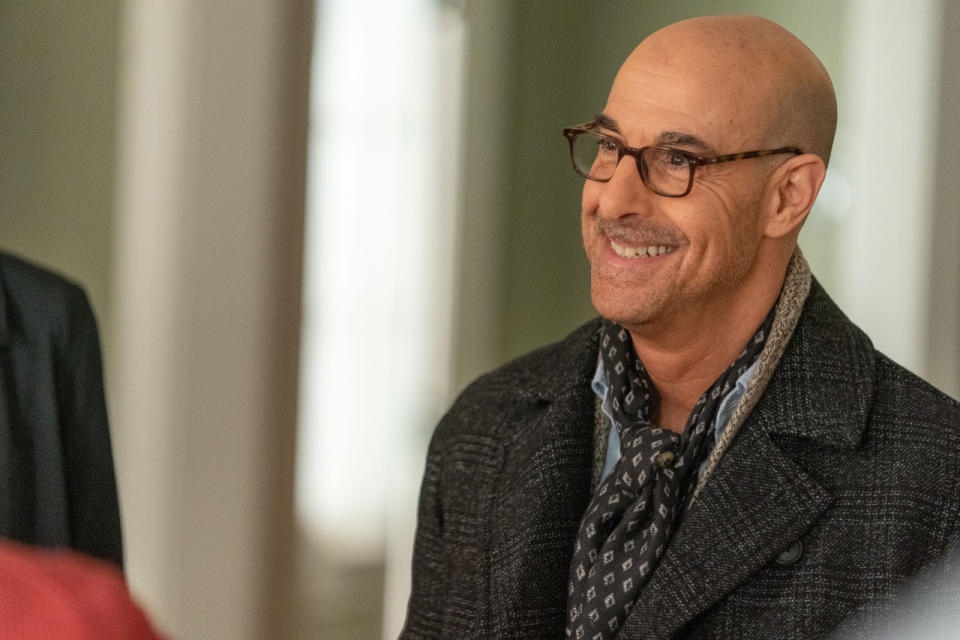Why Facebook Watch Was Scrapped: Keeping Netflix Happy, Lawsuit Says

A newly unsealed document in a potential class-action lawsuit alleges that Facebook shut down Facebook Watch to keep Netflix among its top advertisers — and to keep ads for Netflix series and films off of emerging competitors like Snapchat, a person with knowledge of the lawsuit tells IndieWire. And along the way, the two traded lots and lots of your data — allegedly.
The suit, filed by attorney Brian J. Dunne on behalf of other (scorned, non-Netflix) Facebook advertisers, seeks billions in damages. If they win at trial or settle, the exact dollar amount would come down to a percentage of Facebook’s overall advertising revenue from 2016-2019.
More from IndieWire
Before Facebook launched streaming-video platform Facebook Watch in August 2017, Netflix spent about $40 million per year on Facebook ads, per the letter from Dunne to a Judge Donato. Shortly after Mark Zuckerberg doomed Facebook Watch by decimating its budget in 2018 (it would limp on until the app was officially sunsetted in April 2023, but was never again a serious bidder for content), the spend increased to $150 million; two years later, it was about $200 million.
Sounds hinky, but circumstantial. The alleged quid pro quo is not explicitly stated — at least not in the millions of documents produced by the discovery phase, which is now complete, our source says.
“For nearly a decade, Netflix and Facebook enjoyed a special relationship,” reads the Dunne letter. Facebook and Netflix also shared a lot of in-depth user data as well as a board member, Netflix co-founder (and co-CEO at the time) Reed Hastings. Dunne’s letter to Donato explicitly requested that Hastings turn over documents requested via subpoena months earlier.
Hastings “personally directed” the relationship between Facebook and Netflix from 2011-2018, Dunne alleged. This included “communications about and negotiations to end competition in streaming video,” the attorneys contend, with Zuckerberg and Sheryl Sandberg on the other end.
The data relationship was so deep it allowed Netflix “programmatic access to Facebook’s user’s private message inboxes” and to their “messaging app and non-app friends,” the document reads. In exchange, Netflix would provide a written report every two weeks that “shows daily counts of recommendation sends and recipient clicks by interface, initiation surface, and/or implementation variant (e.g., Facebook vs. non-Facebook recommendation recipients).”
“Meta didn’t share people’s private messages with Netflix,” a Meta spokesperson commented when reached by IndieWire. “As the document says, the agreement allowed people to message their friends on Facebook about what they were watching on Netflix, directly from the Netflix app. Such agreements are commonplace in the industry. We are confident the facts will show this complaint is meritless.”
The company did not comment further.

Facebook Watch was no Netflix but, as the theory goes, with Facebook money all things are possible. (Today, Facebook is worth about $1.3 trillion, or nearly five times the size of Netflix’s $266 billion market cap.)
In 2016 and 2017, Facebook invested more than $1 billion into Facebook Watch with stars like Bill Murray (“Extra Innings”) and Elizabeth Olsen (“Sorry For Your Loss”). It was probable that Facebook and Netflix would go from partners to “potentially ruinous” competitors, as Dunne put it.
However, Zuckerberg then “blindsided” Facebook Watch head Fidji Simo in a May 25, 2018 email by strongly suggesting he cut three-quarters of the project’s budget, Dunne continued. It was over for Watch, but it was just the beginning for Facebook and Netflix’s partnership.
More proprietary data-sharing initiatives between Netflix and Facebook followed, Netflix’s ad-spend on Facebook increased, both tightened strangleholds on their respective industries, and Facebook Watch is barely mentioned among the Seesos and the Quibis that litter the streaming graveyard.
Netflix did not respond to our request for comment.
Best of IndieWire
The Best LGBTQ Movies and TV Shows Streaming on Netflix Right Now
Guillermo del Toro's Favorite Movies: 54 Films the Director Wants You to See
Nicolas Winding Refn's Favorite Films: 37 Movies the Director Wants You to See
Sign up for Indiewire's Newsletter. For the latest news, follow us on Facebook, Twitter, and Instagram.

 Yahoo Finance
Yahoo Finance 